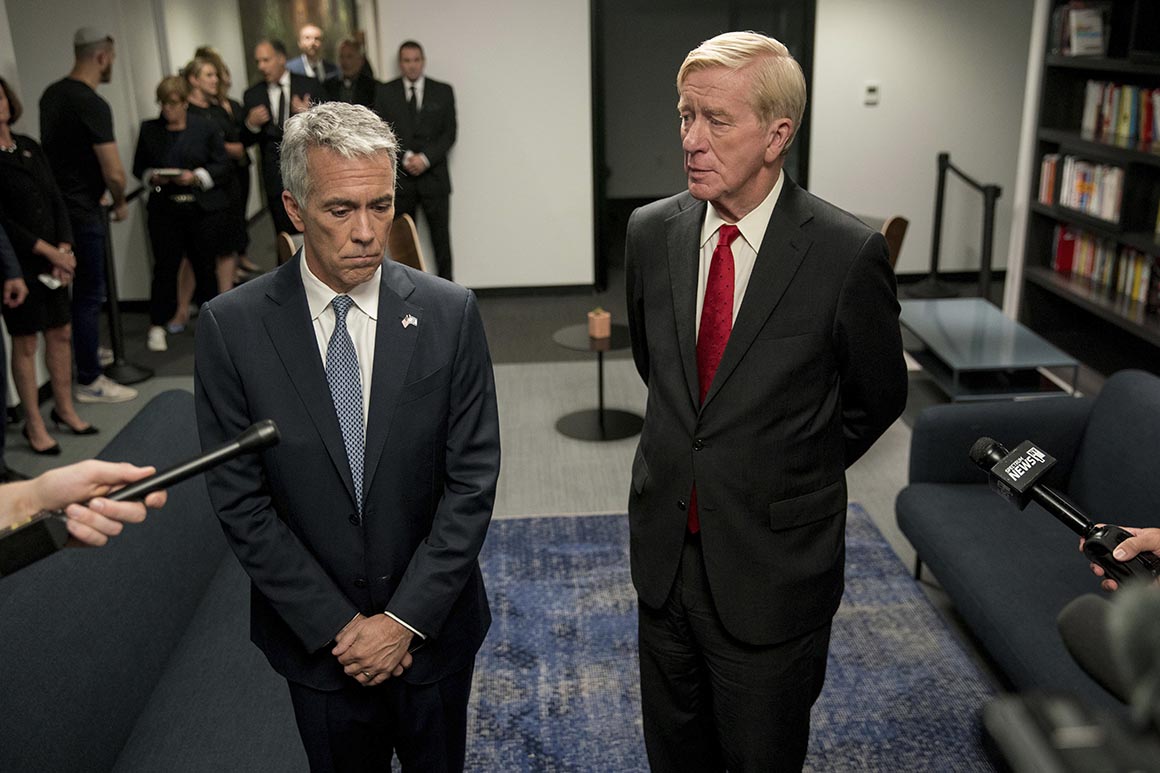
It’s the latest reminder of Trump’s vice-like grip on the GOP — and how any hint of opposition within the party has been extinguished. Even before a single contest has been held, the president has already gone a long way toward securing renomination: He will be the only candidate on the ballot in nine states that collectively account for nearly one-third of the delegates needed.
Walsh and Weld have complained bitterly that several states have scrapped their primaries, calling it undemocratic and part of a broader effort to rig the nominating contest in Trump’s favor. Yet the challengers are missing out on opportunities to compete against the president, even in states where it’s relatively easy to qualify.
Neither Walsh nor Weld will be running in Kentucky, where candidates can qualify simply by paying $1,000, filling out a statement of candidacy form, and proving that they’re on the ballot in 20 other states. Walsh failed to get on the ballot in Louisiana, where it costs just $1,125. Weld won’t be running in Oklahoma, where a presidential aspirant only needs to cut a $5,000 check.
The two are also MIA in some of the country’s most delegate-rich battlegrounds. While Walsh, a former congressman, didn’t file in his home state of Illinois, Weld’s attempt to get on the Ohio ballot was rejected by election officials who said he didn’t meet the state’s requirements.
The Walsh and Weld campaigns say they’ve faced fierce resistance from pro-Trump state GOP organizations which are working to keep them from competing. They have been particularly frustrated by the Georgia and Minnesota Republican parties, which submitted only Trump’s name for the primary ballot.
„It became very clear very early in the process of gaining access to individual state ballots and caucuses that the Trump-controlled state party organizations would not be helpful to challengers,” said Weld spokesman Joe Hunter, adding that “some states have rendered it virtually impossible for any candidate other than the incumbent to qualify.”
Walsh campaign manager Lucy Caldwell called the opposition from the GOP apparatus “unprecedented.”
“When it comes down to it, we’re talking about millions of Republican voters who are having their say disenfranchised,” she said.
Yet Trump campaign officials say their challengers’ absence from key states simply reflects a lack of seriousness. While Walsh and Weld have generated loads of media attention, it hasn’t translated to fundraising dollars or encouraging poll numbers.
“President Trump is the Republican nominee. Anyone else was just pretending so they could appear on MSNBC or maybe get a book deal,” said Trump campaign spokesman Tim Murtaugh. “They were never serious.”
For presidential campaigns, ballot access is a complicated and often costly process — one that typically benefits well-organized incumbents over upstart challengers. States are governed by different criteria — from fees to petition signatures – which determine whether a candidate can get on the primary ballot.
While the Trump campaign has an entire team devoted to ensuring that he’s eligible for each contest, Walsh and Weld have struggled to keep up.
Rick Wilson, who serves as an adviser to a conservative anti-Trump super PAC, described an effective ballot access operation as a “threefold struggle” that required a substantial amount of funding, legal expertise, and organization.
“Unfortunately, neither man has the resources to do that,” said Wilson, noting Walsh and Weld were facing “barriers to entry” across the country.
Trump aides have welcomed the news. While the president’s team has never been overly concerned about Walsh and Weld, they have worked diligently ensure that neither embarrasses Trump the way Pat Buchanan did to incumbent George H.W. Bush in 1992. Buchanan’s surprisingly strong performance in the New Hampshire primary that year raised questions about Bush’s support from conservatives and his viability as a general election candidate. Bush would go on to lose reelection.
Trump campaign officials are also trying to prevent either challenger from staging a distracting protest at the Republican convention in August. Trump aides want the four-day convention to be a smooth-running infomercial for the president’s reelection devoid of the chaos and infighting that defined the party’s 2016 confab.
The two challengers are picking their spots. Weld, a former Massachusetts governor, has been heavily focused on New Hampshire’s first-in-the-nation primary on Feb. 11 and has opened a campaign office there. Walsh, meanwhile, elected not to file in deep-red states like Alabama and Arkansas because his campaign regarded it as overwhelmingly pro-Trump.
Walsh, Caldwell said, was running a “guerrilla campaign” focused on states where she argued he could gain traction.
“There’s a huge disconnect between the Trump-installed party bosses and what every day Republican voters want,” she added. “So, we’re leaning into tactics to help those voters’ voices rise to the top.”
Source: politico.com
See more here: news365.stream






